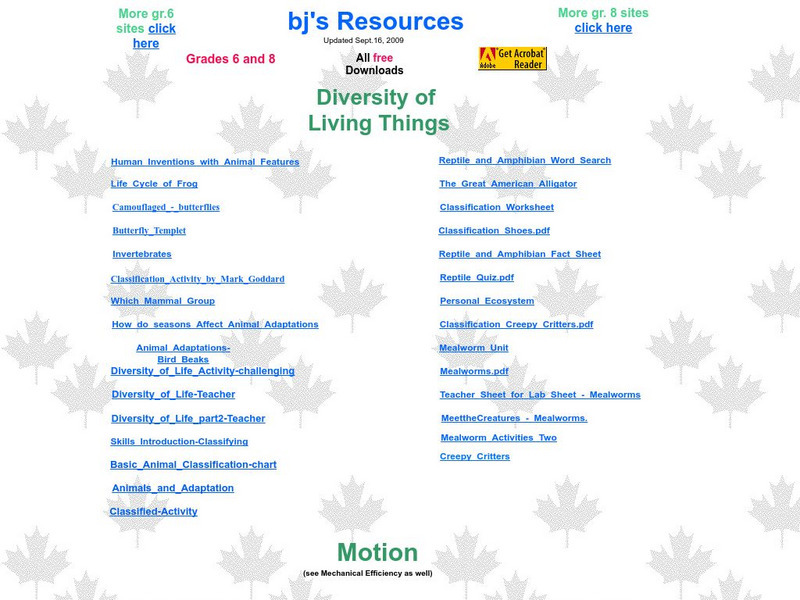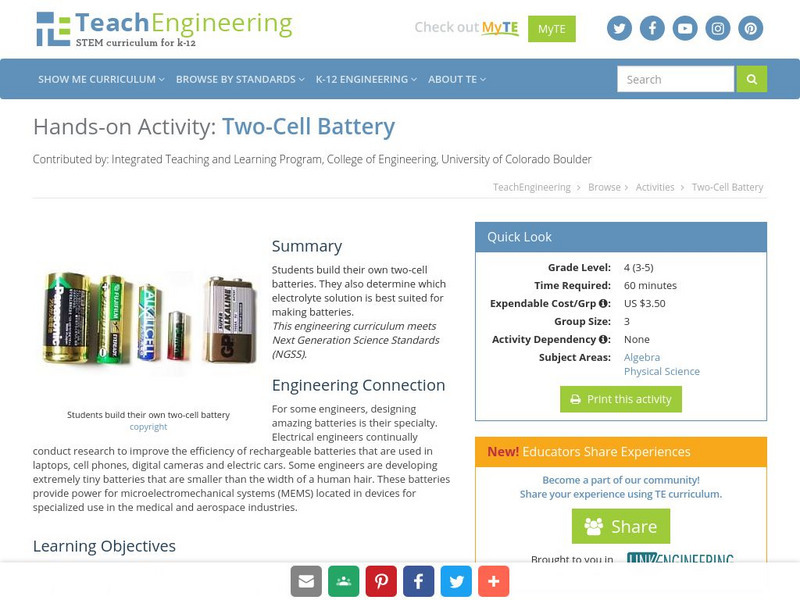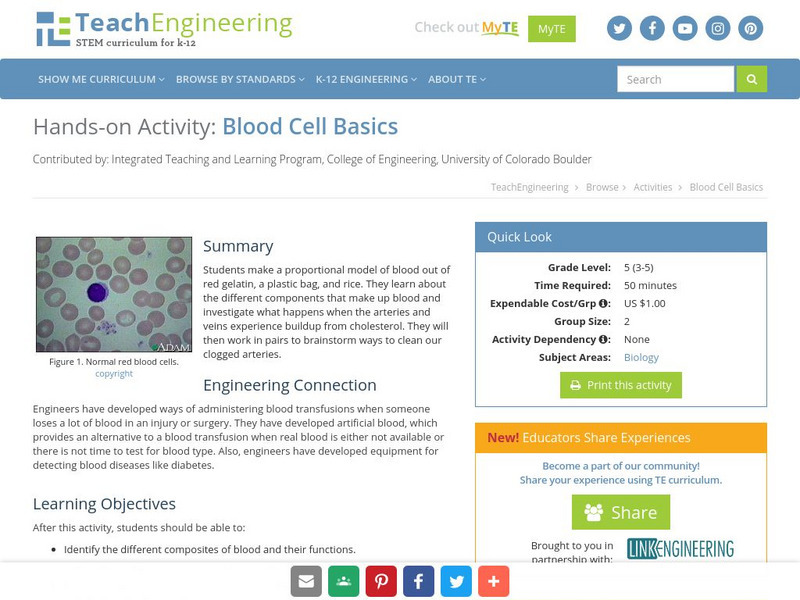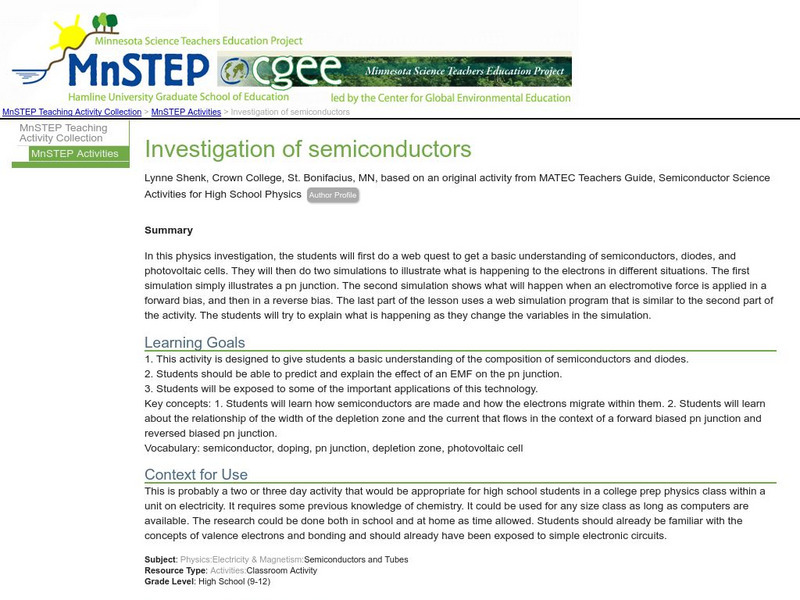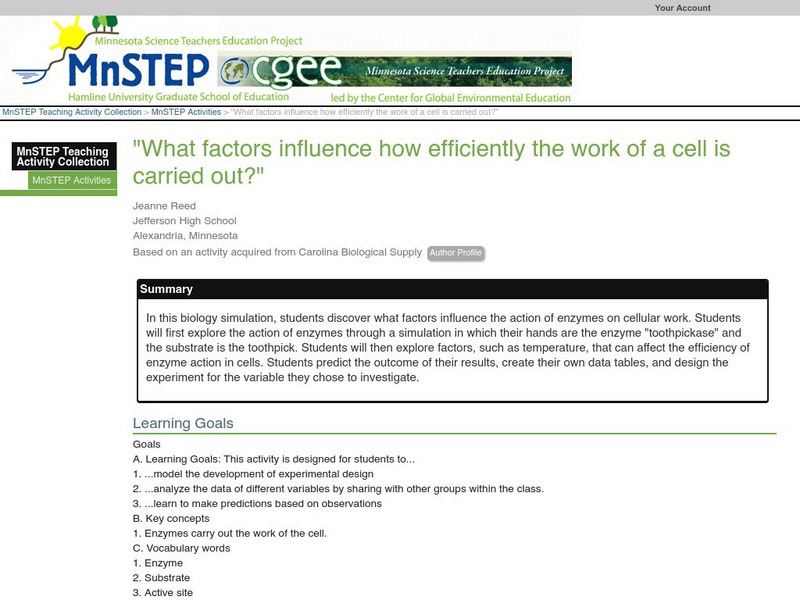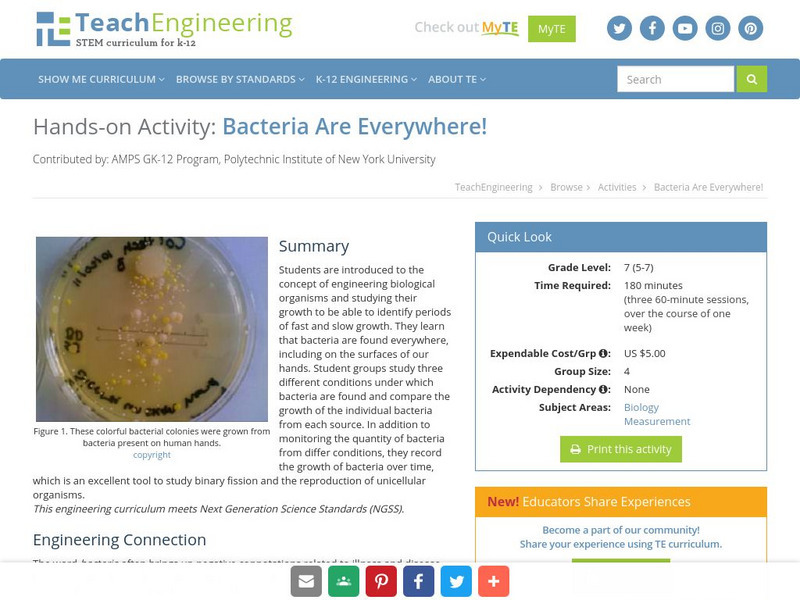Curated OER
Genetic Traits
Young scholars supplement their study of genetics by collecting and analyzing information about their own and their classmates' characteristics and traits. Students create a database of traits and characteristics to compare and contrast.
Curated OER
No Smoke Without Fire
In this no smoke without fire worksheet, students, with a partner, read and discuss twelve questions regarding smoking as a health risk and answer three questions for homework.
Curated OER
Microorganism Multiplication
Seventh graders complete two experiments to learn about harmful and helpful microorganisms. In this microorganisms lesson plan, 7th graders read background information about fungi, yeast, and club fungi. Students then complete two...
Curated OER
Making Blood
Fifth graders review what they have already gathered about human blood. After reviewing the components of blood, they work together to make their own. Using the internet, they complete a blood web hunt and share their discoveries with...
Curated OER
History and Development of the Microscope
In this microscope worksheet, pupils review how microscopes work and how early scientists figured out how microscopes could help them with their discoveries. This worksheet has 3 fill in the blank and 7 short answer questions.
Curated OER
The Font of Funniness
Students research the work of a contemporary humorist by analyzing a variety of pieces of their work. They look at the work from a variety of media sources such as writing, videos, and broadcasts to decide how "American" the material is....
My Science Site
Life Systems: Cells, Tissues, Organs
Extensive site for teachers provides some helpful resources that pertain to plant and animal cells. Includes a microscope diagram as well as plant, animal and pond labs. Also contains links to structures and mechanisms, matter and...
TeachEngineering
Teach Engineering: Two Cell Battery
In this hands-on activity, students build their own two-cell battery. They also determine which electrolyte solution is best suited for making a battery.
TeachEngineering
Teach Engineering: Blood Cell Basics
In this lesson students learn about the circulatory system and how it relates to engineering. Then in a hands-on activity they create a model of blood. Students also act out cholesterol in a blocked artery and look at blood cell in a...
Science Education Resource Center at Carleton College
Serc: Investigation of Semiconductors
Using a web quest, simulations, and hands on activity, students will gain a basic understanding of semiconductors, diodes, and photovoltaic cells. In these activities students will learn how electrons migrate in semiconductors and...
Other
Ohio Department of Education: Cell Division and Differentiation
In this lesson, learners use hands-on activities and journaling to learn about the process of mitosis, meiosis and cell differentiation. Hands-on activities include modeling of the mitosis and meiosis processes with model building and...
National Health Museum
Access Excellence: Modeling Limits to Cell Size
Why can't cells continue to grow larger and larger to become giant cells, like a blob? Why are most cells microscopic in size? Find out answers to these questions through this "hands-on" activity that simulates the changing relationship...
My Science Site
My Science Site: Cell Center Activities [Pdf]
Site provides six possible center activities for teachers to use to engage students in the study of cells.
National Health Museum
Access Excellence: Description of "Cell Membrane Surface Area Demos"
In this hands on site, you will find several simple, fun, cheap, and educational surface area demonstrations to use when studying cell membranes.
Science Education Resource Center at Carleton College
Serc: What Factors Influence How Efficiently the Work of a Cell Is Carried Out?
In this biology simulation, students discover what factors influence the action of enzymes on cellular work. Students will first explore the action of enzymes through a simulation in which their hands are the enzyme "toothpickase" and...
University of Missouri
Microbes in Action: Classroom Activities: Transfer of Diseases
A science experiment to observe how microbes are transferred by hand contact. This lab creates a model to show students how microbes transfer disease. One student will rub their hand with candy soaked in a yeast solution, then students...
TeachEngineering
Teach Engineering: Completing the Circuit
In the everyday electrical devices we use - calculators, remote controls and cell phones - a voltage source such as a battery is required to close the circuit and operate the device. In this hands-on activity, students use a battery,...
TeachEngineering
Teach Engineering: Bacteria Are Everywhere!
Through this activity, students are introduced to the concept of engineering biological organisms and studying their growth to be able to identify periods of fast and slow growth. Students learn that bacteria are found everywhere,...








